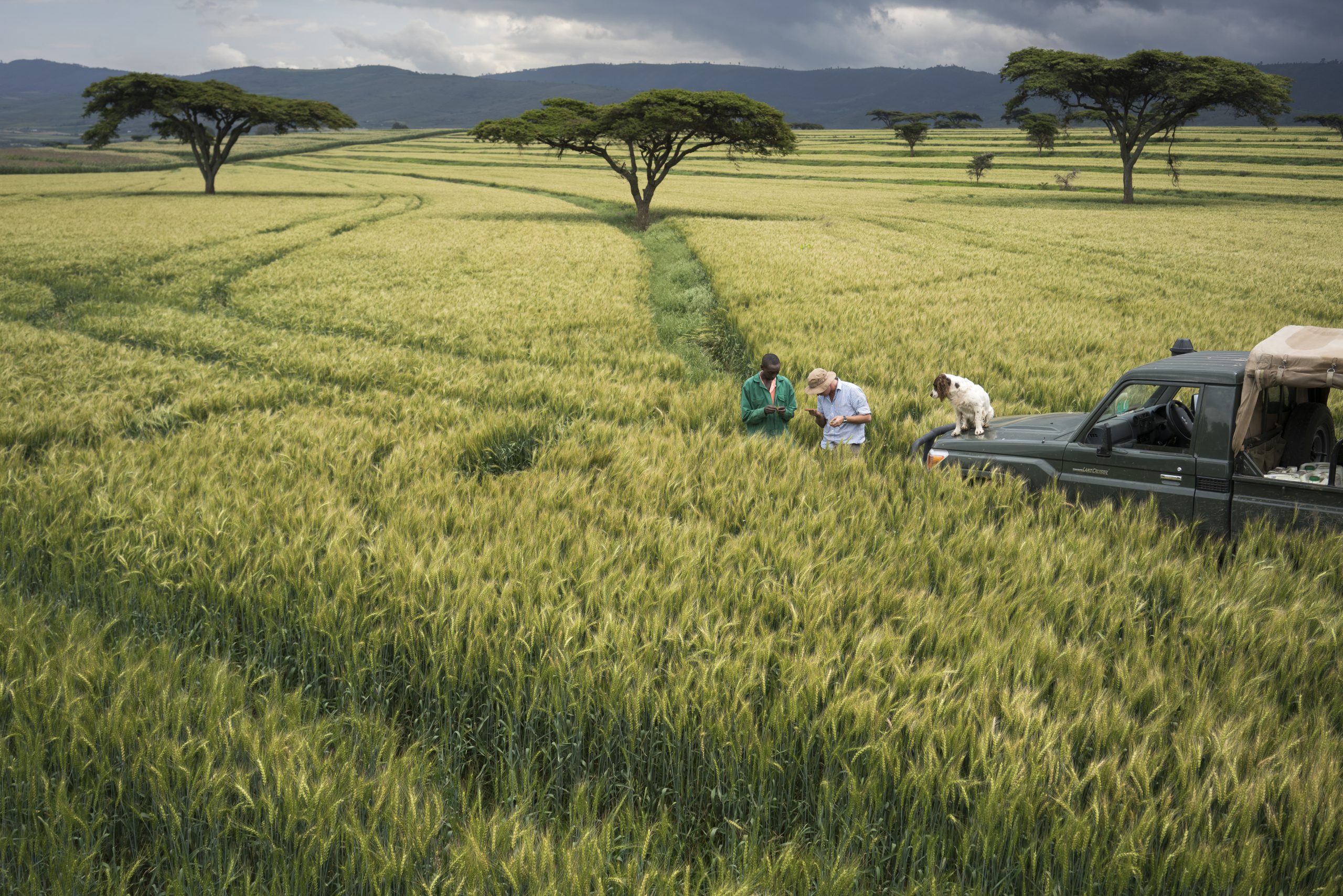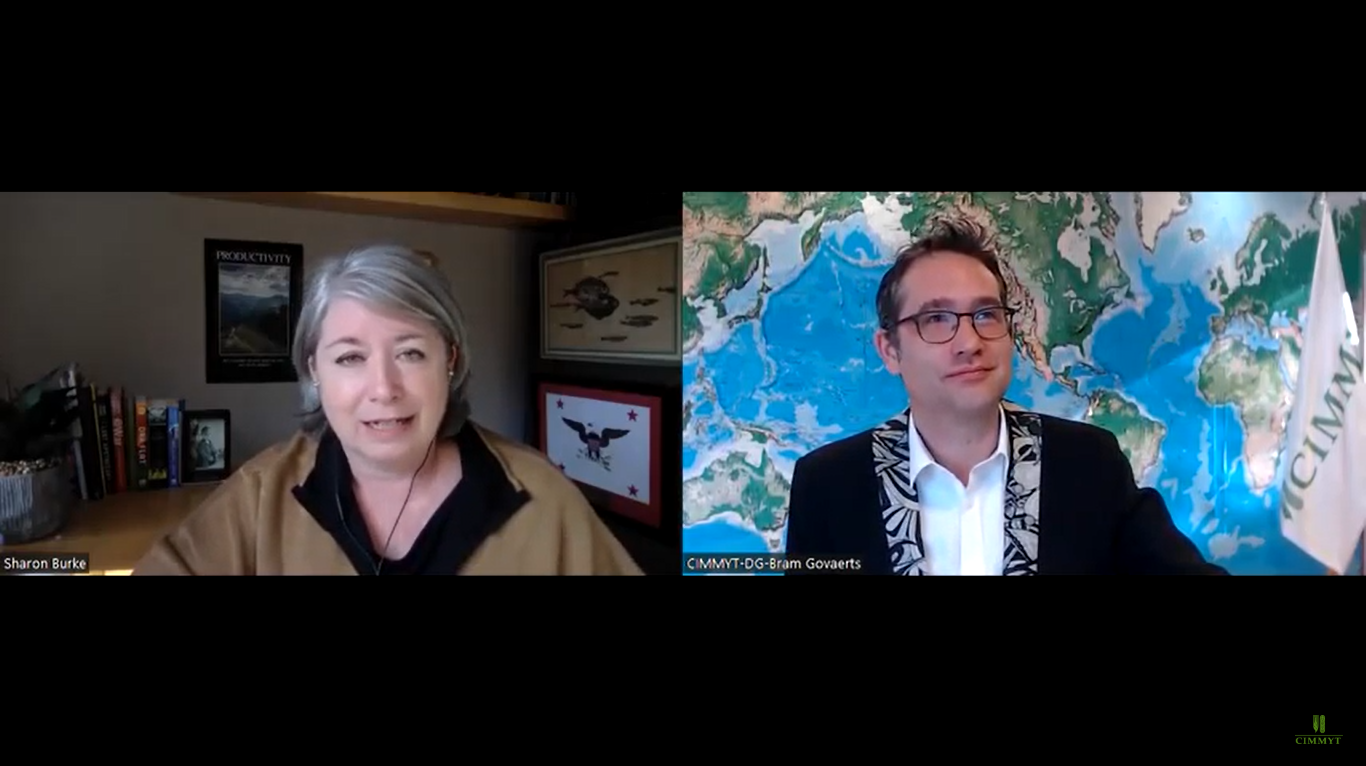Alice Ruhweza, International Maize and Wheat Improvement Center (CIMMYT) Board Member and Africa Regional Director for the World Wide Fund for Nature (WWF), presented on Nature Positive Food Systems for People and Planet on November 22.
Ruhweza has extensive experience working at the intersection of conservation and development in Africa and globally, fostering successful partnerships with a wide range of international institutions. She sits on the Board of The Global Ever-Greening Alliance and on the steering committee of the Future Earth Water-Food-Energy Nexus working group.
Agriculture has a growing environmental footprint, explained Ruhweza, and food emissions are expected to double by 2050. Exponential action is needed to find ways for food systems to co-exist successfully alongside biodiversity, while providing and maintaining healthy diets for humanity.
Ruhweza suggested three solutions for re-thinking the relationship between agriculture and nature: protecting the remaining natural habits from conversion to agriculture; managing agricultural landscapes in a way that support agriculture to enhance the richness and abundance of biodiversity and ecosystem functions, reduces greenhouse gas (GHG) emissions, and enhances resilience to climate change; and restoring degraded agricultural lands and soils to healthy natural habitats or to support sustainable food production.
Organizations like CIMMYT have an opportunity to close the triple gap: producing enough healthy good for a growing population on the same extent of cropland available today, while reducing farm level emissions.

 Nutrition, health and food security
Nutrition, health and food security 
